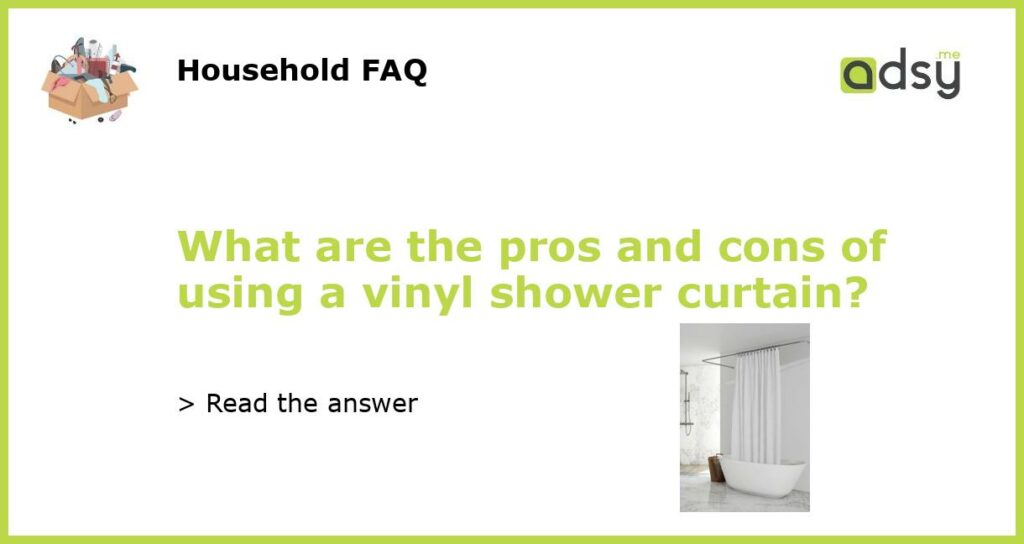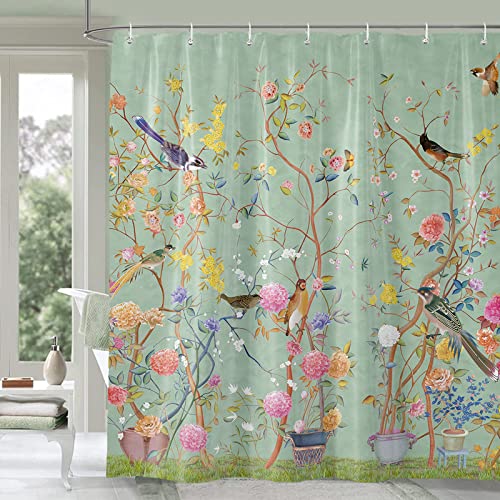The Pros and Cons of Using a Vinyl Shower Curtain
Vinyl shower curtains are a popular choice for many households due to their affordability, durability, and ease of maintenance. However, like any other product, there are both pros and cons associated with using a vinyl shower curtain. In this article, we will explore the advantages and disadvantages of using a vinyl shower curtain to help you make an informed decision for your bathroom.
Advantages of using a Vinyl Shower Curtain
1. Affordability: One of the biggest advantages of using a vinyl shower curtain is its affordability. Vinyl shower curtains are typically much cheaper than other materials such as fabric or polyester. This makes it an ideal choice for budget-conscious consumers or those looking for a quick and inexpensive update to their bathroom decor.
2. Durability: Vinyl shower curtains are known for their durability and longevity. They are resistant to wear and tear, as well as mold and mildew. This makes them a great option for bathrooms with high humidity levels or those prone to moisture build-up. Additionally, vinyl shower curtains are less likely to tear or rip, ensuring that they will last for a long time.
3. Easy to Clean: Vinyl shower curtains are incredibly easy to clean. They can be wiped down with a damp cloth or sponge to remove any dirt or grime. Some vinyl shower curtains are even machine washable, making it even easier to maintain their cleanliness. This is a significant advantage over other materials, which may require more time and effort to keep clean.
Disadvantages of using a Vinyl Shower Curtain
1. Chemical Odor: One of the main disadvantages of using a vinyl shower curtain is the chemical odor it may emit. Vinyl curtains are often produced using PVC (polyvinyl chloride), which can release a strong odor that some people find unpleasant. This odor can linger in the bathroom and may take some time to dissipate. If you are sensitive to smells, this may not be the best option for you.
2. Environmental Impact: Vinyl is a synthetic material derived from oil or gas, making it non-biodegradable. When a vinyl shower curtain reaches the end of its life, it cannot be easily recycled and may end up in a landfill. If you are concerned about the environmental impact of your purchases, you may want to consider more sustainable alternatives such as fabric or recycled polyester shower curtains.
3. Potential for Toxicity: Some vinyl shower curtains may contain harmful chemicals such as phthalates or volatile organic compounds (VOCs). These chemicals can be released into the air and may pose health risks, especially for individuals with respiratory conditions or chemical sensitivities. It is essential to look for vinyl shower curtains labeled as non-toxic or phthalate-free to reduce the potential for exposure to these harmful substances.
In conclusion
While vinyl shower curtains have their advantages in terms of affordability, durability, and ease of maintenance, there are also some drawbacks to consider. The chemical odor, environmental impact, and potential for toxicity are important factors to keep in mind when deciding whether to use a vinyl shower curtain. Ultimately, the choice depends on your personal preferences, budget, and environmental concerns. If you are looking for an inexpensive and low-maintenance option, vinyl shower curtains may be a suitable choice. However, if you prioritize sustainability and minimizing exposure to harmful chemicals, you may want to explore alternatives such as fabric or recycled polyester shower curtains.






